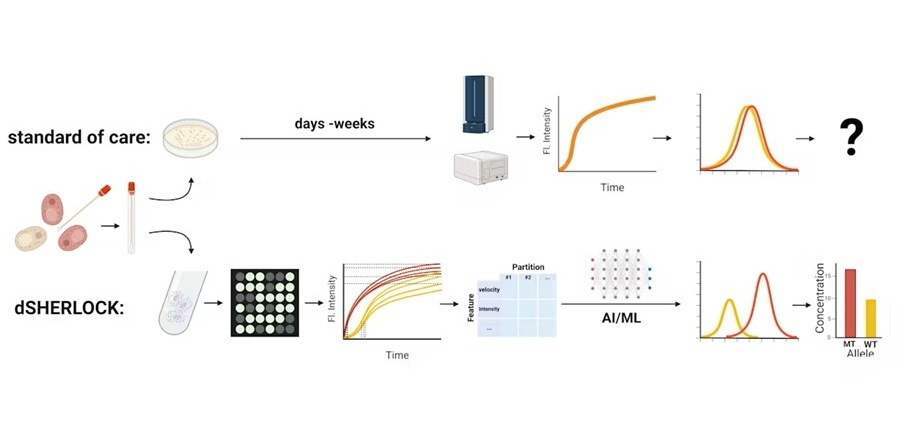Assay Rapidly Identifies Patients Colonized with MRSA
By Labmedica staff writers
Posted on 08 Jan 2008
A two-hour test identifies methicillin-resistant Staphylococcus aureus (MRSA) from positive blood cultures. The test will help enable physicians to implement the right treatment at the right time for patients with bloodstream infections, thereby transforming patient care and significantly reducing healthcare costs. The new assay is the first molecular test to rapidly and simultaneously identify two deadly healthcare-associated infections (HAIs)—S. aureus (SA) and methicillin-resistant S. aureus (MRSA)--from patients.Posted on 08 Jan 2008
Called the GeneOhm StaphSR assay, the test is easy to perform and requires less technologist time than traditional microbiology algorithms, which can take two days to generate results. Studies have shown that providing physicians with critical microbiology information earlier, results in decreased mortality, shorter hospital stays, and is less costly.
Developed by BD Diagnostics (San Diego, CA, USA), the GeneOhm MRSA assay rapidly identifies patients who are colonized with MRSA and allows infection control professionals to break the chain of MRSA transmission. BD has received clearance from the U.S. Food and Drug Administration (FDA; Rockville, MD, USA) for the GeneOhm StaphSR assay. The company also submitted applications to the FDA for a GeneOhm StaphSR assay that identifies staph infection through a nasal swab or wound.
"The launch of the BD GeneOhm StaphSR assay in the United States further demonstrates BD's commitment to helping healthcare providers rapidly identify, prevent, and control HAIs,” said Vince Forlenza, executive vice president, BD. "It also illustrates our desire to provide customers with a complete menu of assays and tools to combat these potentially deadly infections.”
BD is also developing rapid tests for the detection of two other organisms that cause severe HAIs. These tests will identify the vanA and vanB genes associated with vancomycin-resistant enterococci and the toxin gene associated with Clostridium difficile. These rapid assays will further complement the company's range of HAI-related products.
Related Links:
BD Diagnostics
U.S. Food and Drug Administration













